Contemporary Montessori Trainings
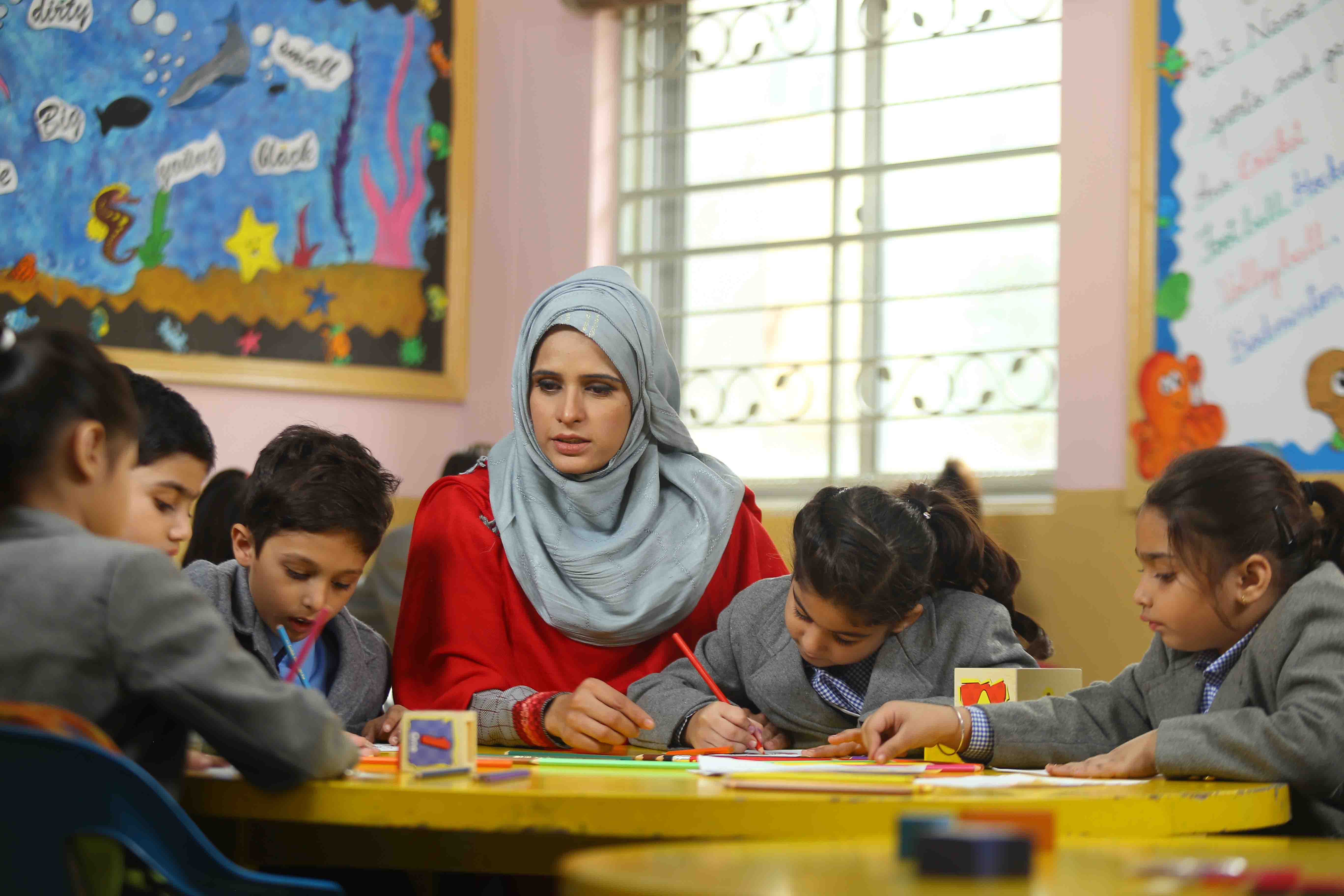
Montessori is a planned educational environment for children in the years before a child commences formal school. Children are usually aged between 3 and 6 years. The first six years of life are critical years of human life since the rate of development in these years is more rapid than at any other stage of development. Global brain research also informs us about the significance of early years for brain development
Pride Academia Montessori offers a modern day approach for preschool teaching and focuses on innovative ways of interactive learning. Pride Montessori System is basically based and derived from Montessori system of education however, it is modified according to our high concern of Islamic values and social needs.
Pride Academia Management trains teachers to execute innovative ways of effective learning. These are teaching through:
- Exercises of Practical Life
- Sensorial Development
- Activities
- Games
- Art and Craft
- Circle time
- Rhymes
- Story telling
Exercises of Practical Life (EPL):
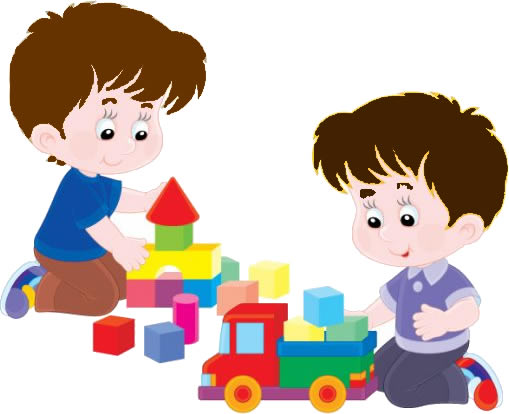 Exercises of practical life help the child develop coordination, concentration, a sense of personal independence, and a sense of order. Through the exercises of practical life, the child develops the self-confidence and attention that is important for preschool students. Practical life activities help to develop life skills as a seed.
Exercises of practical life help the child develop coordination, concentration, a sense of personal independence, and a sense of order. Through the exercises of practical life, the child develops the self-confidence and attention that is important for preschool students. Practical life activities help to develop life skills as a seed.
Sensorial Development:
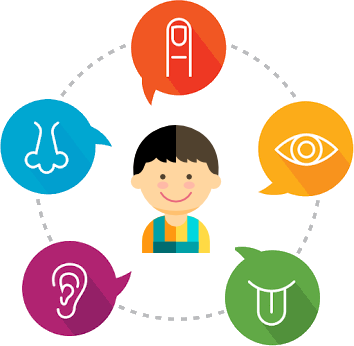 Montessori system believes that sensorial experiences begin at birth. Through the senses, the child studies his environment. Through this study, the child then begins to understand his environment. The child, to Montessori, is a “sensorial explorer”.
The purpose and aim of Sensorial work is for the child to acquire clear, conscious, information and to be able to then make classifications in his/her environment Through work with the sensorial materials, the child is given the keys to classify the things around him, which leads to the child to construct his/her own experiences in his environment. Through the classification, the child is also offered the first steps in organizing his intelligence, which then leads to his adapting to his environment.
Montessori system believes that sensorial experiences begin at birth. Through the senses, the child studies his environment. Through this study, the child then begins to understand his environment. The child, to Montessori, is a “sensorial explorer”.
The purpose and aim of Sensorial work is for the child to acquire clear, conscious, information and to be able to then make classifications in his/her environment Through work with the sensorial materials, the child is given the keys to classify the things around him, which leads to the child to construct his/her own experiences in his environment. Through the classification, the child is also offered the first steps in organizing his intelligence, which then leads to his adapting to his environment.
Activity based teaching:
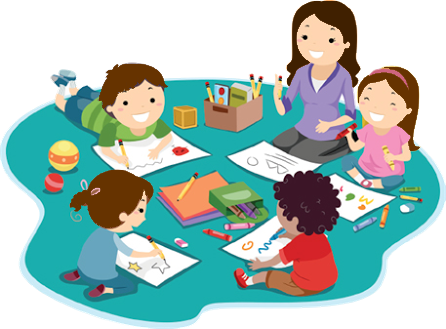 Activity based teaching is a technique adopted by a teacher to emphasize his or her method of teaching through activity in which the students participate rigorously and bring about efficient learning experiences. It is a method in which the child is actively involved in participating mentally and physically. Learning by doing is the main focus in this method. Learning by doing is imperative in successful learning since it is proved that more the senses are stimulated, more a person learns and longer he/she retains.
Activity based teaching is a technique adopted by a teacher to emphasize his or her method of teaching through activity in which the students participate rigorously and bring about efficient learning experiences. It is a method in which the child is actively involved in participating mentally and physically. Learning by doing is the main focus in this method. Learning by doing is imperative in successful learning since it is proved that more the senses are stimulated, more a person learns and longer he/she retains.
Games:
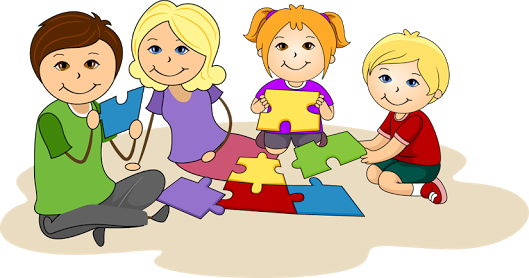 Children learn so much from games. It teaches them social skills such as sharing, taking turns, self discipline and tolerance for others. Child’s personality is groomed by playing creatively. Through games children learn and are developed as confident individuals. Games assist in their emotional, intellectual development and mental health resilience, which are core building blocks for their transition years.
Children learn so much from games. It teaches them social skills such as sharing, taking turns, self discipline and tolerance for others. Child’s personality is groomed by playing creatively. Through games children learn and are developed as confident individuals. Games assist in their emotional, intellectual development and mental health resilience, which are core building blocks for their transition years.
Art and Craft:
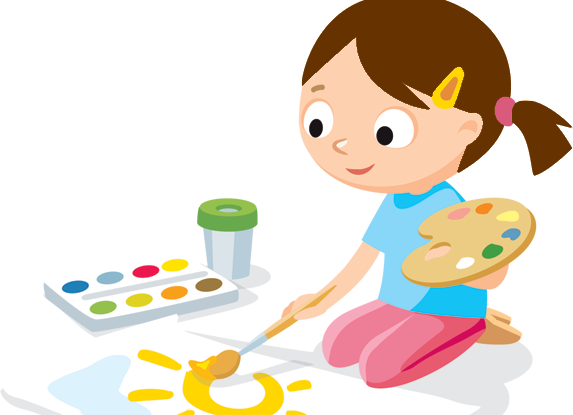 Art and craft is an educational technique that allows children to learn through creativity and self expression. Pride School System incorporates arts and crafts into classroom lessons, as it can be applied to any type of subject, such as learning about safety, animals or relationships.
Art and craft is an educational technique that allows children to learn through creativity and self expression. Pride School System incorporates arts and crafts into classroom lessons, as it can be applied to any type of subject, such as learning about safety, animals or relationships.
Circle Time:
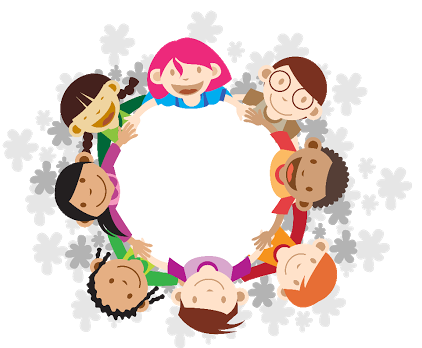 Circle time is a time when our students come together as a community of learners. As a community, we share our thoughts, listen to one another, develop language, actively participate together, introduce new concepts and ideas, read together, sing together, and build a sense of respect and support for one another.
Circle time is a time when our students come together as a community of learners. As a community, we share our thoughts, listen to one another, develop language, actively participate together, introduce new concepts and ideas, read together, sing together, and build a sense of respect and support for one another.
Rhymes:
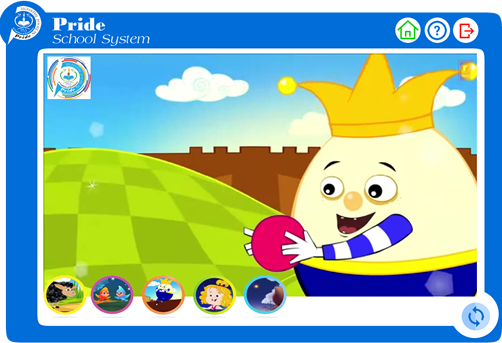 An extremely effective teaching method for younger children is turning their learning material into a rhyme. While they may struggle with learning words by themselves, once you arrange some rhymes, a melody and hand motions, your students won't stop singing. As an added bonus, educational rhymes are a great way to settle down a wiggly class without compromising any learning time.
An extremely effective teaching method for younger children is turning their learning material into a rhyme. While they may struggle with learning words by themselves, once you arrange some rhymes, a melody and hand motions, your students won't stop singing. As an added bonus, educational rhymes are a great way to settle down a wiggly class without compromising any learning time.
Story Telling:
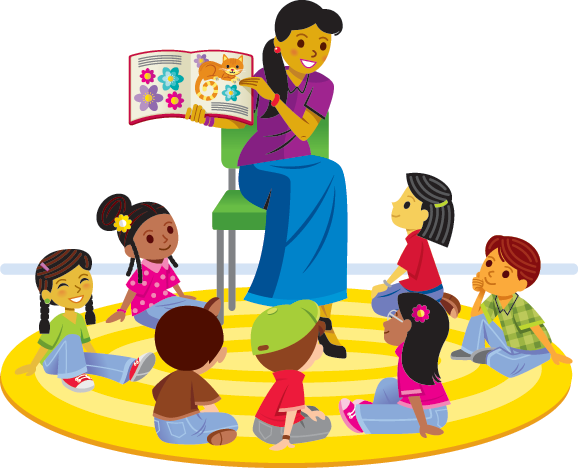 Story telling is a stimulating way to teach preschoolers about a moral lesson through a fairytale or another type of imaginary story. Montessori students enjoy seeing the colorful pictures, listening to the new vocabulary and following along to see how the story ends. You can even make storytelling interactive by involving students.
Story telling is a stimulating way to teach preschoolers about a moral lesson through a fairytale or another type of imaginary story. Montessori students enjoy seeing the colorful pictures, listening to the new vocabulary and following along to see how the story ends. You can even make storytelling interactive by involving students.
